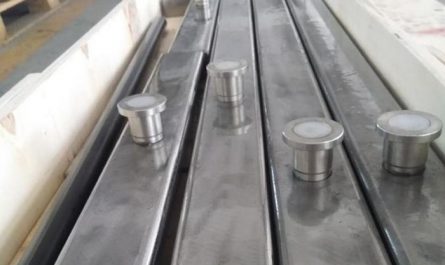The so-called “know yourself and know your enemy, never slacken in a hundred battles”.

This safety strategy for resumption of work and production: one case, two signatures, three trials, four harvests, five inspections, six passes, seven heavy, August 1, nine o’clock and ten moves! The first case is to formulate a work plan for the resumption of work and production safety, clarify the work responsibilities and specific tasks, and ensure the orderly resumption of work and production.
Two signatures 1 The staff shall sign in the report when returning to work to confirm the personnel in place; 2.
Sign the safety production responsibility letter to further clarify the safety production responsibility.
Three tests 1 Trial scheduling, scheduling is the core of production and operation, and orderly and stable scheduling is the key to safe production; 2.
Test equipment, large-scale equipment shall be put into trial operation, and common tools and equipment shall be used for no-load trial; 3.
Try out protective equipment, protective articles and support equipment to test their effectiveness.
Four after four stanzas concentration method 1 Hold safety meetings, unify ideas and put forward safety work requirements; 2.
Conduct safety training and provide training on post safety knowledge and skills; 3.
Make safety commitment and organize employees to carry out safety commitment activities; 4.
Make safety warnings and carry out warning education through accident cases.
Five checks 1 Check the state of mind, master the thoughts and emotions of employees, and ease and adjust them in an orderly manner; 2.
Check the training disclosure, and focus on the safety training and technical disclosure before work; 3.
Check the safety measures, and check the implementation and rectification of various safety measures; 4.
Check the safety records, check the records and files of safety work performed by all departments and posts, and implement the control procedures; 5.
Check violations, and check and correct various “three violations” at the operation site.
Six customs pay attention to six high-risk points of returning to work and production 1 Pay attention to post holiday syndrome and prevent accidents caused by inattention, slip and emotional instability; 2.
Pay attention to new employees, be sure to do a good job in safety training and technical disclosure, and focus on inspection; 3.
Pay attention to the adjustment of positions, and pay special attention to and inspect some personnel who have changed positions or changed positions; 4.
Pay attention to the start-up link of the equipment.
When the stopped equipment is started again, it is necessary to do a good job in inspection, perform procedures and protection; 5.
Pay attention to the maintenance operation, which has always been a high-risk and accident prone operation, and should be paid high attention; 6.
Pay attention to the working environment and confirm the safety of the working environment.
Seven key parts of safety inspection after the Seventh Festival 1 Focus on the inspection of the power distribution room; 2.
Focus on the inspection of the central fire control room; 3.
Focus on the inspection of limited space; 4.
Focus on the inspection of storage places; 5.
Focus on the inspection of hazardous chemicals; 6.
Focus on the inspection of hazardous workplaces; 7.
Focus on the inspection of places where special equipment is used.
The main person in charge of August 1 implements the eight one measures 1 Lead a team to inspect work safety at least once a month; 2.
Organize a special study on work safety every quarter; 3.
Organize and hold a safety production summary meeting at least once a year; 4.
Preside over a safety production analysis meeting; 5.
Organize the signing of a letter of responsibility for safety production of all posts; 6.
Give employees a safety production guidance course; 7.
Participate in a production safety emergency rescue drill; 8.
Participate in a training on safety production knowledge and skills.
Nine periods with high incidence of accidents at nine o’clock 1 Before and after holidays and special periods; 2.
When the time is tight and the task is heavy; 3.
When the working environment is difficult; 4.
Coming off work or closing stage; 5.
Working at night or alone; 6.
Cross operation in the same area; 7.
Business expansion; 8.
When new process and equipment are launched; 9.
When facing difficulties in production and operation.
Ten tips for troubleshooting hidden dangers 1 Broken: as long as a piece of equipment or a part is damaged, it can basically be identified as a hidden danger.
For example, the connecting hose is damaged and the equipment is rusted.
2.
Lack: if there should be but there is no, it can be identified as a hidden danger.
3.
Naked: according to the common sense of ordinary people, one thing is dangerous, but if it is exposed within the range that people can touch, it can be identified as a hidden danger.
4.
Disorder: the essence of safety production is a kind of order management.
If it is disorderly and disorderly, it must be a hidden danger.
5.
Crowding: safety production generally has safety distance requirements.
Once there is crowding at zero distance or too small distance, it can generally be identified as a hidden danger.
6.
Blocking: it should be unblocked but not unblocked, which can be identified as a hidden danger.
7.
Flashing: if the operation indicator light or display of a device is found flashing continuously, it can generally be determined as a hidden danger.
8.
Shaking: Generally speaking, both mechanical equipment, working platform and operation auxiliary tools need good stability and firmness.
Once the opposite situation is found, it can be identified as a hidden danger.
9.
Imitation: some equipment and facilities imitated by enterprises themselves can generally be identified as hidden dangers.
10.
Concealment: if the inspected person does not truthfully explain the situation, it is generally concealing hidden dangers.
Return to work and production after the festival.
Put safety in production first!..


